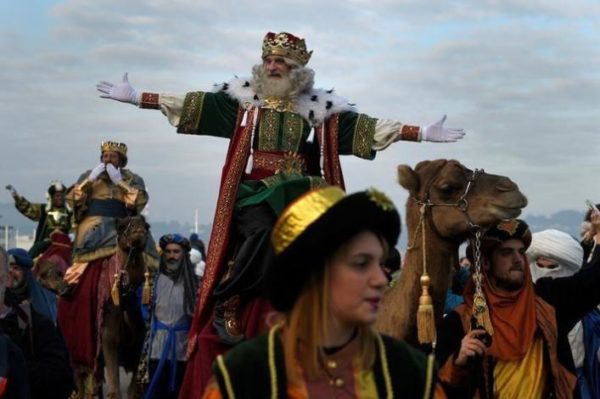3 Things To Know About The Feast Of Epiphany.

January 6 is the day when we traditionally celebrate the visit of the three kings to the Baby Jesus in Bethlehem, the 12th day of Christmas, as the song goes, the Feast of the Epiphany, a big word that means when you suddenly see something with new understanding, with new eyes, like the wise men. But as I used to like to remind my Sunday school students, it’s worth looking at the Bible to find out just who these first followers of Jesus were.
Here are 3 things to know about the wise men:
1) They weren’t kings.
Don’t mean to botch any casting calls you have for your Christmas pageant, but you can ditch the gold crowns. Nowhere in the book of Matthew, chapter two, does it say they were kings. They were “wise men” or the “magi,” possibly astronomers in that they followed a star to get to Judea.
The undisputed king in the story is King Herod who hears of their mission and asks his experts, the chief priests and scribes, to find out where this new ruler is supposed to be born. “Bethlehem,” he learns. Then he calls the wise men to him and gives them this crucial bit of information, without which these travelers from East might have found themselves wandering forever.
Interesting, isn’t it, that Herod, the bad guy in the story, is also helpful, an instance of God using evil for his own good purposes?
2) There weren’t three.
Back to that pageant again…next year, you can have as many wise men as you want, two, three or 20. The Bible never says three. (Note to the wise: sometimes our favorite Christmas carols can be wrong.) The text just says “wise men,” plural.
So why has tradition made it three, even giving them names, Balthazar, Melchior, Caspar? Probably because in the book of Matthew it says they brought Jesus three gifts: gold, frankincense and myrrh. But all of them could be giving the three things out of their treasure chests or they might have divvied it up.
As for props for next year’s pageant, keep those treasure chests and keep the star that lodged over the house where Jesus was found. Mind you, it’s a house in the book for Matthew and not a stable. But then Luke never says “stable” in his version of the Christmas story, he just puts the baby in the manger.
3) Their lives were never the same.
My favorite verse in the whole story of these wondrous wise men is the last line, the last we hear of them: “And being warned in a dream not to return to Herod, they departed to their own country by another way.”
Dreams can offer good practical guidance. Herod was seething with jealousy about this new ruler. He eventually has every male child in Bethlehem under the age of two killed. No telling what he might have done to the wise men.
But what a tantalizing tidbit we get here, an indication of faith’s journey. After we’ve seen Jesus, after we’ve worshipped the real king, after communing with God’s son, we can’t go back home the usual way. Our journey through life has a new star to guide us.
That’s why they say, “Wise men and women still seek him.” We do. Happy Epiphany!

